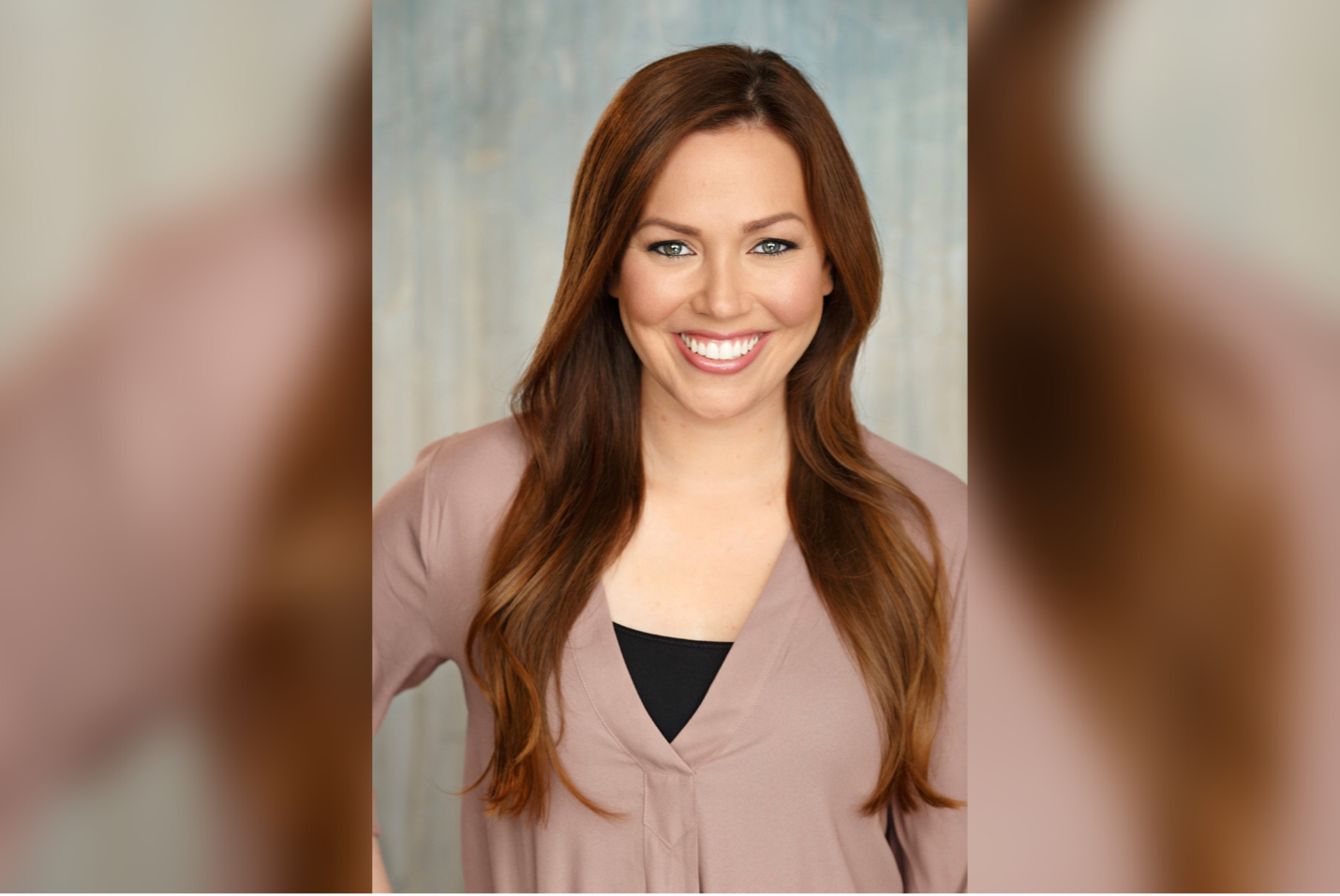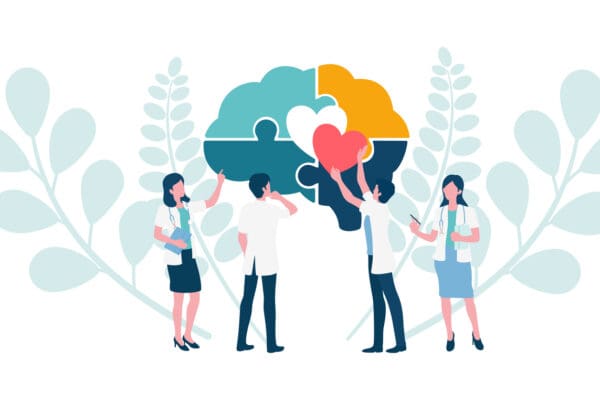While managing cocktail lounges in Las Vegas, Amylee Amos became troubled by the patrons’ diets and “unhealthy practices.”
“It was astonishing and sad in so many ways,” she said.
From that moment on, she resolved to become part of the solution in helping people live more healthfully.
Amos, who holds a bachelor’s degree in theater, decided to go back to college to beef up the science side of her CV. She had every intention of earning that degree from her alma mater.
But when she learned about USC’s innovative Master of Science in Nutrition, Healthspan and Longevity (MSNHL) program, she knew it could support her in achieving her goals. Offered both online and on-campus, the MSNHL is a product of USC’s top-ranked Leonard Davis School of Gerontology. The degree prepares graduates for a wide range of careers that all have one aim: helping people achieve the healthiest life possible as they age.
Amos joined the MSNHL’s first cohort after a symposium where she heard its director, Associate Clinical Professor Cary Kreutzer, EdD, MPH, RDN, FAND, discuss the program’s offerings — and renowned faculty.
“She said one of the professors would be Valter Longo, whose studies I had read in my prerequisite courses,” Amos recalled. “To me, the thought that I would be learning directly from the researchers conducting groundbreaking work seemed too good to be true.”
The degree program, Amos added, “lived up to every expectation.”
Using Nutrition to Fight Alzheimer’s
Longo, who directs the USC Longevity Institute and serves as the Edna M. Jones Chair in Gerontology, is an expert in researching how nutrition might stave off Alzheimer’s and other age-related diseases. Amos found that focus of special — and personal — interest.
“My family has a history of Alzheimer’s,” she said, and her grandmother died of the disease. As such, Amos wanted to learn all she could to help protect others from its ravages.
She also knew she wanted to take the entrepreneurial path in sharing dietary interventions that could potentially slow or even reverse neurodegenerative decline.
Although the MSNHL program is already noted for the success of its graduates in jobs ranging from hospital-based nutrition therapy to corporate and sports wellness, Amos said, “I wanted to go into private practice right off the bat.”
Launching the Amos Institute
The program provided Amos with all the grounding needed to pass the national test for becoming a registered dietitian nutritionist. She also became certified by the Institute for Functional Medicine. Amos regards functional medicine, which uses a holistic approach to addressing the root causes of disease, as “the wave of the future.”
Armed with this knowledge, she launched the Amos Institute to offer practical strategies for strengthening the brain and body.
“It’s a virtual platform with a cognitive health program consisting of 26 video lessons,” she explained.
The institute’s dynamic website also features recipes and a blog with updated, health-related information. Clients can even sign up for one-on-one counseling sessions with Amos or her staff of dietitians.
“Some people need more individualized attention, like having their lab work analyzed or customized meal plans created,” Amos said.
The USC Leonard Davis program and the Amos Institute both address epigenetics — the environmental and behavioral factors that interact with our genes to either worsen or ease the risk of Alzheimer’s and other conditions associated with aging.
“I learned a lot about that from my time at the school, and I’ve been able to build on this knowledge since,” she said.
Whether studied remotely or in-person, the MSNHL program fosters real-world expertise.
“Clinical experiences are a requirement,” Amos noted.
To fulfill it, she performed an internship at the USC Norris Comprehensive Cancer Center.
“That was another wonderful opportunity because of my interest in chronic illness,” she said.
Then, at what she called “the other end of the spectrum,” Amos conducted rotations in USC residential dining halls. She also assisted in providing nutritional counseling at USC’s Engemann Student Health Center.
Although Amos was able to intern within USC, students pursuing the MSNHL degree can take advantage of internships wherever they live. Remote students also complete a capstone project that is presented at a dietetics conference or published in a peer-reviewed journal.
“One of the wonderful things about the program is the flexibility it offers,” Amos said.
A Mediterranean Diet for Healthy Aging
Amos also traveled with fellow USC Leonard Davis Gerontology students to study in Italy, which was the highlight of her time in the program.
“We were learning from Longo, but he also brought in tons of guest lecturers,” she recalled.
The month-long program also enabled students to engage in observational learning.
“Being able to study fasting, fasting mimicking [a reduced-calorie regimen that fools the body into thinking it’s going without food] and epigenetics in the context of the Mediterranean diet — while being in the Mediterranean — was incredible,” Amos said.
Continuing the Journey
After earning her theater degree, Amos lived in London while deciding whether her future lay in the stage. Ultimately, she journeyed from the performing arts to the sciences to help prevent Alzheimer’s through nutritional interventions.
But the essence of performing is empathic communication, and, through the Amos Institute, she connects with clients from some 13 countries around the world.
“Our focus is to help people optimize their brain health — and by doing so, increase their health span with a comprehensive, accessible and affordable program,” Amos explained.
While Alzheimer’s will remain a specialization, she hopes to develop strategies for helping to alleviate the damage caused by other chronic diseases. She is also working to train future RDs as a guest lecturer at USC, providing many MSNHL students with real-world insights and guidance.
As her journey of assisting others continues, Amos said, “I wouldn’t change anything about the path that I’ve taken. There are lots of ups and downs with opening your own practice, but I’ve learned a lot along the way.”
The information on this website is not intended as a substitute for medical advice, and individuals should consult with their doctor or dietitian before making changes to their diets.
Learn more about the online Master of Science in Nutrition, Healthspan and Longevity program today.





